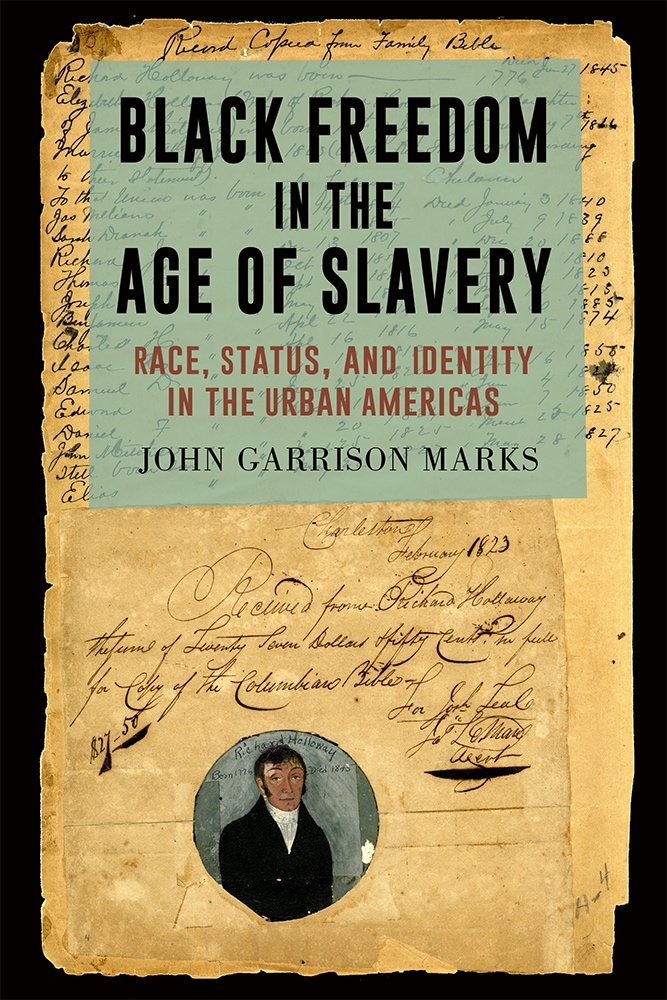Black History Month Sale: 40% off all books, plus FREE SHIPPING on all U.S. orders over $50 | Use code JBHM26

Size: 6 x 9
Pages: 234
Illustrations: 1 b&w halftone, 16 tables, 1 map
John Garrison Marks
The inclusion of this book in the Open Carolina collection is made possible by the generous funding of
"An important contribution to the history of black freedom, this comparative study of free people of color in Charleston and Cartagena is equally attentive to the broader Atlantic and to local economic, social, demographic, and institutional circumstances. The result is a rich, textured, and locally grounded reconstruction of people of African descent's relentless pursuit for standing, respectability, family and community in the Americas."—Alejandro de la Fuente, Harvard University
"In Black Freedom in the Age of Slavery John Marks has produced a carefully researched and innovative study of how enslaved people in the Atlantic slave ports of Cartagena and Charleston achieved freedom and sought respectability under very different social, economic, and political systems. The key he argues, was the access to public institutions free people of color enjoyed in the Spanish city, and the commitment Charlestonians made to preserve slavery in perpetuity. Based on deep archival research in Colombia, Spain, and the United States, this is a welcome contribution to the study of slavery, racism, and emancipation."—Jane Landers, Vanderbilt University
"Black Freedom in the Age of Slavery makes a crucial contribution to the history of the Atlantic world. By linking the lives of free blacks in Charleston, South Carolina, and Cartagena, Colombia, Marks's work bridges the sites of Atlantic slavery, treating disparate geographies as fundamentally linked and raising broad and important questions about the nature of black freedom. Marks's deeply researched and beautifully written study is an important work that will impact the fields of Latin American history, North American history, the histories of slavery and freedom, and beyond."—Jennifer L. Morgan, New York University
"Through its comparative and urban focus, Black Freedom in the Age of Slavery unveils the common struggle of a distinct group of African descendants who, from their separate locations in the Americas, similarly challenged an Atlantic racial order intent on subjugating Black autonomy, well-being, and lives to white prerogatives."—Hispanic American Historical Review
Copyright 2026
Website By Morweb.org